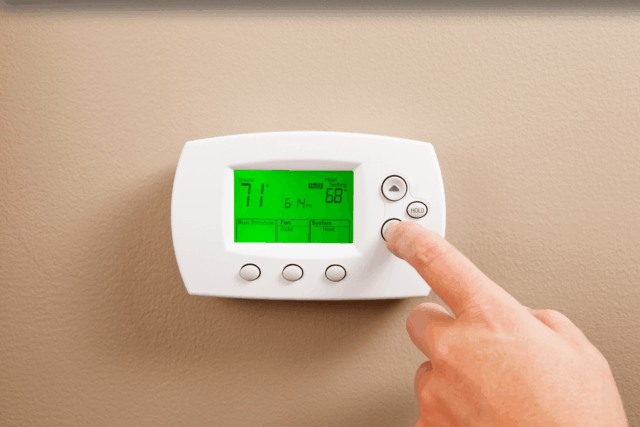Plumbing, Heating, Cooling & Electrical Blog

Garbage Disposals Do’s and Don’ts this Thanksgiving
It’s Thanksgiving in the Seattle area: a full table, relatives in the living room, football on TV—and a mountain of dishes waiting their turn in the sink. Your garbage disposal works nonstop when it’s time to clean up. One bad load of scraps or a little too much grease, and a clogged disposal can stop everything cold right ... Garbage Disposals Do’s and Don’ts this Thanksgiving
Read MoreSeattle Furnace Repair Vs Heat Pump Repair: What Fails the Most in the Fall
Fall in the greater Seattle area means shorter days, damp air, and your heating system waking up after summer. Your furnace and heat pump are the key players that make your home comfortable as the weather turns. Proactively checking and maintaining your heating system now prevents surprises later. Simple steps—cleaning filters, testing ignition, checking defrost controls—through a fall furnace tune up or heat pump ... Seattle Furnace Repair Vs Heat Pump Repair: What Fails the Most in the Fall
Read More Day & Nite Plumbing & Heating
How to Choose Your Home’s Replacement Heating System
Having worked in the Plumbing, Heating, & Cooling industry now for over 40-years, I’ve come to notice a few basic things worth considering when it’s time to choose a heating/cooling system; either initially with a new home, or as a replacement for an existing system. The most basic thing to consider is what kind of system or systems are you most comfortable living with… Do you like ... Day & Nite Plumbing & Heating<br>How to Choose Your Home’s Replacement Heating System
Read MoreReplacing an Old Sewer Line? You Have Options
Many of us are living in our homes longer and longer, while others are buying homes that are at least 25-years old, and often 75 to 100 years old. One thing that comes to the forefront in older homes is the condition of the main sewer line (for homes that aren’t on septic tanks). Main ... Replacing an Old Sewer Line? You Have Options
Read MoreThe Truth About Chemicals and Drain Cleaning
The last few articles have been about drain systems, clearing them when clogged and digitally documenting them. A properly-designed drain system correctly used and maintained should never really clog and stop up, and it’s usually misuse or a foreign object in the system that causes clogs. Except for clogged toilets, the drains that clog most ... The Truth About Chemicals and Drain Cleaning
Read MoreWhy is My Furnace Leaking?
When your furnace generates heat to send through your home, it creates condensation that is normally removed from the home through a condensate drain line. If something goes wrong, your furnace may start leaking water. Here’s how to tell what is going on, and when to call for furnace repair. Furnace Condensation The production of ... Why is My Furnace Leaking?
Read MoreHow Inefficient are Electric Baseboards? You might be shocked!
About 50% of all the homes in the U.S. heat with Natural Gas. The next most common source of heating (in about 35% of all U.S. homes) according to the last census is some sort of electric heat. ‘Resistance Baseboard Electric’ heat is a very common and tempting choice for people who need to build ... How Inefficient are Electric Baseboards? You might be shocked!
Read MoreWhy Does My House Smell? Chapter 3
We often get a call for help to find ‘that bad smell’. If it’s a ‘musty’ smell, it’s often molds or mildew, and I covered discovering and solving those in the last two articles. This month we’ll look at those other mystery smells, which almost always fall into a couple categories… Some kind of sewer, or sewer-gas ... Why Does My House Smell? Chapter 3
Read MoreWhy Does My House Smell? Chapter 1
Often, especially in the Winter Months, we get called in to help with a ‘bad’ smell or a ‘musty smell’ problem. ‘Bad Smell’ problems can literally be anything, from an open pipe in the wall and sewer-gas, to dead rodents, to mold and mildew. Usually, a bad, musty smell is caused by molds and mildew taking ... Why Does My House Smell? Chapter 1
Read MoreIs Your Air Conditioner Uncool? Try These Tips Before You Call for Help
As summer continues, I can’t help but think about our last heat wave. It really made those without air-conditioners want one… and those who did have one …pray that the record-breaking heat wouldn’t break the one they had. And so, it was with my neighbor. As I pulled into my driveway on one of those ... Is Your Air Conditioner Uncool? Try These Tips Before You Call for Help
Read MoreWhen Your Water Heater Leaks Location Matters
You have work…kids at home for the summer…guests coming over… and everyone in the family needs hot water now. Unfortunately, life as you know it has just been interrupted by a leaking water heater. The inconvenience is bad enough, but when you factor in the possibility of water damage, it can become catastrophic. One of ... When Your Water Heater Leaks Location Matters
Read MoreNeed a Contractor? Use These Helpful Hints to Find one You can Trust.
The question of finding and knowing who to hire to do work for us has always plagued consumers. Here are a few helpful hints that never go out of fashion. A sweet lady in Ballard had a clogged main sewer line, so she called a company she had seen advertised a lot for help. The ... Need a Contractor? Use These Helpful Hints to Find one You can Trust.
Read MoreOFFER GOOD ONLY IN OUR SERVICE AREA
*Not valid with any other offer. Some restrictions may apply. Limit one coupon per household.
Do it Right-Call Day & Nite 425-224-6452
OFFER GOOD ONLY IN OUR SERVICE AREA
*Not valid with any other offer. Some restrictions may apply. Limit one coupon per household.
Do it Right-Call Day & Nite 425-224-6452
OFFER GOOD ONLY IN OUR SERVICE AREA
*Not valid with any other offer. Some restrictions may apply. Limit one coupon per household.
Do it Right-Call Day & Nite 425-224-6452




